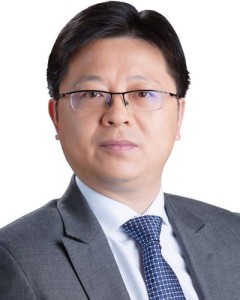As the number of wealthy families rises in China, managing the succession of their fortunes is attracting more attention. Here we tap into some top legal analysis on preserving the dynasty
Passing on of family control
The majority of private enterprises in China are family controlled. The family and the family business affect one another and depend on one another for their existence. Family control is the heart of the family governance mechanism. The passing on of Chinese family control is subject to its profound background effect and has its own particular features consisting broadly of the following three aspects: reestablishment or improvement of the family governance mechanism, creation of the core family spirit and values, and formulation and implementation of a successor grooming plan.

Senior Partner
Hylands Law Firm
The background. In addition to the nexus of blood relationships, the formation and development of the majority of Chinese families follow closely the growth of the family business. Most family businesses are started by the first generation founder or family members, and as the size of the business continually increases, the members who enter the business continually increase from the original nuclear family to encompass such family members as uncles, nephews, etc. Thus the family gradually takes shape and develops. In the course of the development, most families are busily focusing their efforts on the domain of the enterprise, overlooking the grooming and succession of the family successors. On the other hand, the family spirit and culture have yet to take shape and there is a major difference in the intergenerational thinking of the family members, resulting in its being pulled and roiled by various lines of thinking and competing ideas.
The crystallization of Chinese family control generally follows the successful founding of the family business by the founder and the accumulation of wealth by the core family members. Family wealth is usually inseparable from the property of the family business, material family matters are decided by the core family members that created the wealth and family control strictly relies on the personal attributes of the core family members, such as their authority, experience, etc., which are not reproducible and are difficult to transmit. When the first generation family leader, namely the founder of the family business, gets on in years, the question of succession becomes urgent.
Family governance mechanism. With the development of the family, an increasing number of families begin to move from natural growth to planned and orderly development. The establishment of a sound family governance mechanism is not only an objective and effective medium for the exercise and passing on of family control, but also the development direction for the long-term development and intergenerational succession of the entire family.
The family governance mechanism usually includes the assembly, constitution, council, supervisory board, family affairs office and such specialized committees as the education committee, occupational planning committee, advisory committee, etc. Through the grind and operation of the family governance mechanism, family affairs are handled in a manner that is rules based and succession to control is also brought under the governance of the family governance structure. With the continuous improvement of the family governance mechanism, the passing on of family control will become smoother, more orderly and effective. Numerous families, both ancient and modern, Chinese and foreign, have had or have governance structures that they themselves created. Of course, Chinese family governance mechanisms require a long process of establishment and improvement, requiring the joint efforts of a generation or even multiple generations of persons.
Establishment of core family spirit and values. While the governance mechanism is the medium for the passing on of family control, the family’s core spirit and values are the soul of the passing on of family control.
Successful families will necessarily have an intrinsic system of core values and code of conduct, and tacit rules for dealing with the various relationships within the family, which will reduce the various conflicts that family members could encounter when making decisions and lower communication costs. During the formation of these tacit rules, family members will be exchanging ideas and communicating one with another, increasing the solidarity of the family and solidifying the harmonious interaction among them. The family members will cause such values and code of conduct to influence and be passed on to subsequent generations.
A clear and predictable joint set of values can have a major impact on the establishment of marriage ties and the spousal relationships of family members, stable marriages being a factor of utmost importance to the stability and harmony of a family, and has direct bearing on the family’s capacity to sustain its development. Many cases of families being harmed by the breakup of a marriage relationship provide lessons to learn from for the development and succession of a family.
Successor grooming plan. With the security provided by the family governance mechanism and the establishment of the core system of values, the successor grooming plan has a good basic environment. However, the successor grooming process which follows closely the process of the successors growing up is a long-term process. Not only are a reasonable family education and training plan, successor selection system, professional planning scheme, etc., necessary, but even more necessary is the family having an organized polished and practical arrangement for the next generation that commences when they are small. Particularly important is the teaching by example by elders in the household and parents, which has a long-term and profound impact on the grooming of the successors.
For families in whom the successors have reached adulthood, the proper handling in practice of children’s marriage relationships, stepchild relationships, foster child relationships and relationship of children born out of wedlock are factors that are key to the passing on of family control and to family harmony.
In short, the passing on of family control is dependent on the application of the wisdom of the present family and family leaders, and is also the historical mission of the present family leaders. “Direct one’s knowledge to the study of things, and once things have been studied, knowledge will reach its fullest”, says the famous line in the Great Learning chapter of the Book of Rites. The passing on of family control is intimately related to the family’s prosperity and development. The family leaders shoulder a heavy responsibility and need to divert more of their energy from creation of the family’s fortune to the enhancement of the individuals’ life situations and transmission of the family’s spirit, as this is the only way to ensure the family’s fortune will be succeeded in perpetuity and every generation of the family will prosper and develop.
Yun Dahui is a senior partner at Hylands Law Firm. She can be contacted on +86 10 6502 8868 or by email at yundahui@hylandslaw.com
Foreign elements in private wealth management
Private wealth management (PWM) has in recent years become a trendy concept quite familiar to almost everyone. Few high-net-worth individuals have assets located solely in their home countries or have no plans for their overseas assets. With the implementation of the Common Reporting Standard (CRS) aimed at facilitating the exchange of tax information among countries, foreign elements are now indispensable factors to be considered in PWM. As such, what are the most common foreign elements in PWM?

Partner
Jingtian & Gongcheng
Foreign elements of the subject. PWM may cover many family members, and it is inevitable that some of them may have obtained or plan to take up permanent residency elsewhere, or have become citizens of other countries or settled there. So, it is necessary to focus on the changes in the tax status of such people due to changes of identities. Also, when drafting legal documents related to PWM, it is worth noting the influence
on validity of the agreement due to the laws of different jurisdictions.
In some situations, clients actively seek foreign residency when aiming to pursue PWM. Among the common circumstances are the following:
1. As most countries have restrictions on identity for specific assets or investments, some family members have to obtain nationality or permanent residency elsewhere in accordance with relevant regulations when allocating assets globally to overcome such restrictions;
2. Plan to get a foreign tax residency to avoid tax reasonably by holding assets under another name, or to completely change his/her tax status.

Counsel
Jingtian & Gongcheng
Foreign elements of assets. In order to diversify risks, as well as possess a variety of assets, high-net-worth individuals also have increasing demands for overseas investments as evident in the rising figure related to this. There is a wide range investment opportunities, including, but not limited to, financial assets, real estate projects, stakes in listed companies, equities in other companies, aeroplanes, yachts, artworks and intelligent properties. As there are divergent legal conditions and regulations in different countries or regions related to obtaining, transferring or damaging assets, it is necessary to consult professionals on issues to be aware of and the possible legal consequences.
Foreign elements of common tools. This article mainly introduces the following three common PWM tools:
1. Foreign-related testament. Testament, as the most basic PWM tool, allows people to dispose of all various properties at their own discretion without signing any sophisticated documents, setting complicated terms or completing tedious examination or registration. If the testator or the beneficiary has foreign identities, or the legacy is located outside mainland China, there are foreign elements in such testaments.
Although most countries acknowledge the effectiveness of the testament, they have different requirements for its establishment and the criteria of its effectiveness. Therefore, the effectiveness of the testament uder different laws shall be the first thing to consider when drawing up a foreign-related testament.
2. Overseas jumbo insurance policy. This is always seen as having some effect on asset preservation, debt avoidance, wealth management, legitimate avoidance of estate tax and estate inheritance. These factors make it one of the key tools of wealth inheritance and risk diversification for high-net-worth individuals.
Even though some domestic insurers have launched some large-value insurance products in recent years, overseas jumbo policies have more functions and tailor-made settings, such as easier access to policy loan financing. Also, the amounts that overseas jumbo insurance policies cover are usually higher than domestic ones and may reach tens of millions of dollars, which can satisfy better the needs of high-net-worth individuals.
3. Establish overseas trust. Rich foreign families establish trusts effectively to fulfil the inheritance of their wealth and businesses. These trusts attract the attention of the emerging high-net-value individuals in China. Unlike China, where family trust only refers to fund trust, in the UK, the US or other countries with developed trust industries, almost all kinds of properties may be put into the trust at the trustor’s will with more privacy (limited by the real estate registration system, real estate in China may not be put into foreign trust). So high-net-worth individuals prefer to establish trusts in countries or regions with relatively mature trust systems.
The foreign elements involved in establishing overseas trusts include not only the establishment location, but also the asset segregation, as well as the coordination and arrangement of assets in different jurisdictions. In the course of establishing a trust, the high-net-worth individuals usually incorporate offshore companies, through which they hold stakes in listed companies or domestic assets. If the domestic assets are restricted by admission qualification for foreign investors, they will control their domestic assets through variable interest entities (VIEs).
Foreign elements involved in dispute resolution. “Dispute resolution” here mainly refers to divorce and divorce-related litigations. Foreign identity and foreign location of real estate have great significance in determining the court jurisdiction and applicable laws for possible future litigation. Most countries adopt jus sanguinis or jus soli to determine if a court has the competent jurisdiction over litigations of divorce, marital property disputes, property preservation and otherwise; for real estate, most countries adopt exclusive jurisdiction. Therefore, when designing a PWM plan, it is necessary to consider the impact of such elements on possible disputes in the future.
Considering foreign elements and their influence are key to the PWM. Only then may the law firms provide clients with better legal services and provide the true PWM.
Wu Weiyi is a partner in the Shanghai office of Jingtian & Gongcheng. He can be contacted on +86 21 2613 6213, or by email at wu.weiyi@jingtian.com
Lu Shanjing is a counsel in the Shanghai office of Jingtian & Gongcheng. She can be contacted on +86 21 2613 6379, or by email at lu.shanjing@jingtian.com




















